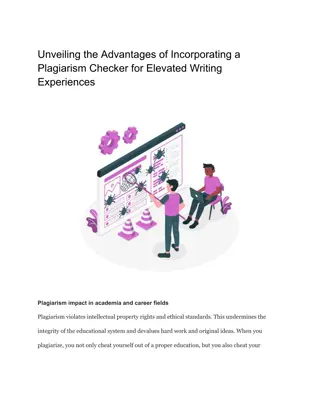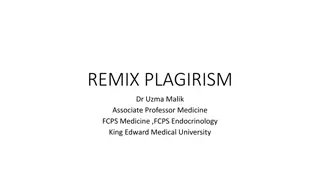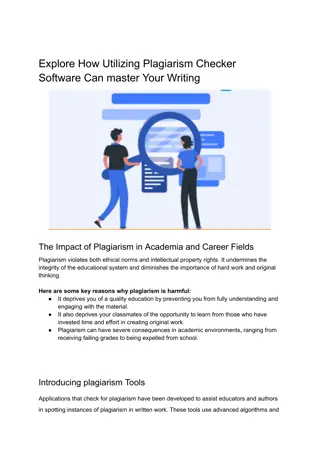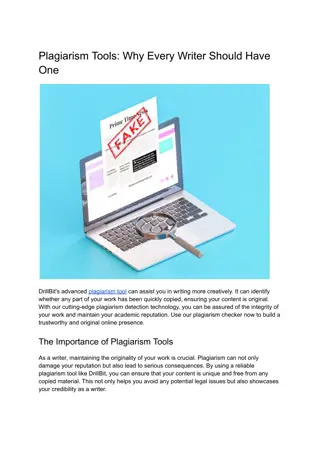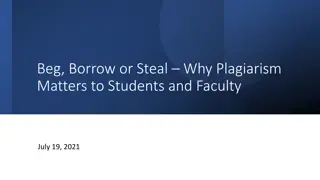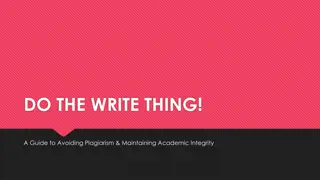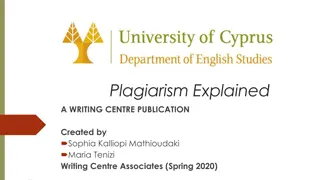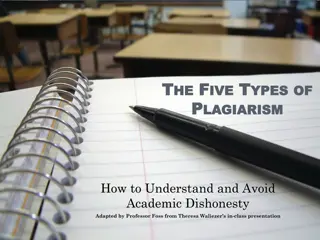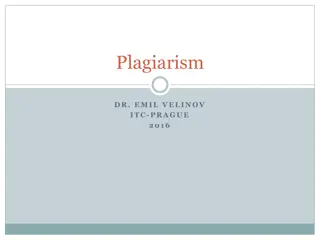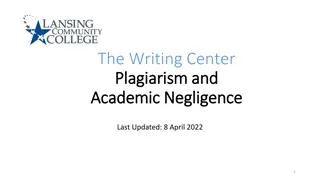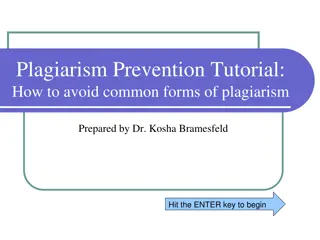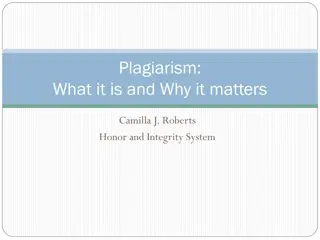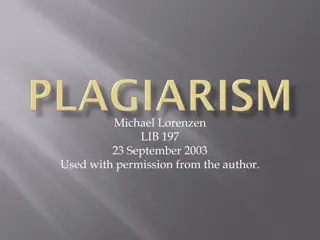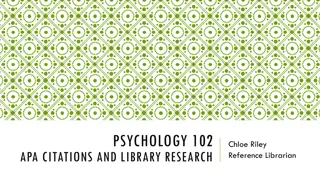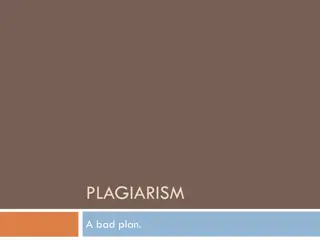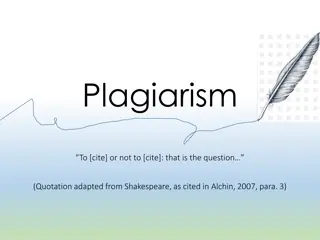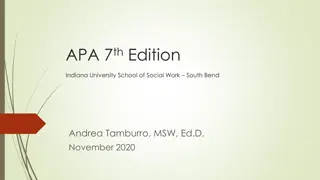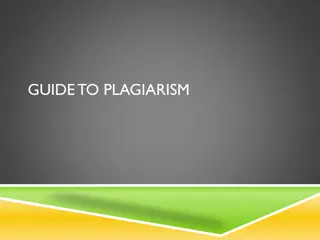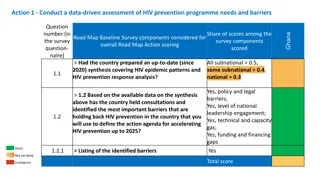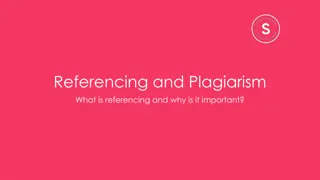Understanding Plagiarism: Definition, Consequences, and Prevention
Plagiarism involves stealing and presenting someone else's work as your own, which can have serious academic repercussions such as failing grades, disciplinary actions, or even expulsion. It is crucial for students to understand what constitutes plagiarism and how to avoid it to maintain academic integrity.
Download Presentation

Please find below an Image/Link to download the presentation.
The content on the website is provided AS IS for your information and personal use only. It may not be sold, licensed, or shared on other websites without obtaining consent from the author. Download presentation by click this link. If you encounter any issues during the download, it is possible that the publisher has removed the file from their server.
E N D
Presentation Transcript
Plagiarism https://www.plagiarism.org/ is used to prepare this short INFO
What is Plagiarism? According to the Merriam-Webster online dictionary, to "plagiarize" means: to steal and pass off (the ideas or words of another) as one's own to use (another's production) without crediting the source to commit literary theft to present as new and original an idea or product derived from an existing source
All of the following are considered plagiarism: turning in someone else's work as your own copying words or ideas from someone else without giving credit failing to put a quotation in quotation marks giving incorrect information about the source of a quotation changing words but copying the sentence structure of a source without giving credit copying so many words or ideas from a source that it makes up the majority of your work, whether you give credit or not (see our section on "fair use" rules)
Plagiarism at FBE Plagiarism, cheating and other misconduct are not acceptable at EMU. Individual work must reflect an individual s own effort. Plagiarism is an offense and will be dealt with according to University regulations. A single offence of cheating, plagiarism or other academic misconduct on assessment methods may lead to disciplinary probation or a student s suspension or expulsion from the University.
How can it affect me as a Student? Plagiarism may affect your grades. If plagiarism is detected in your exam scripts or term papers, you may get an F from that course or you may be referred to the disciplinary committee. If you plagiarise in your MA or PhD thesis, you will be referred to the disciplinary committee that will put your graduation at risk.
Plagiarism Source: https://www.plagiarism.org/article/what-is-plagiarism For further information on plagiarism, please visit: https://www.plagiarism.org/


